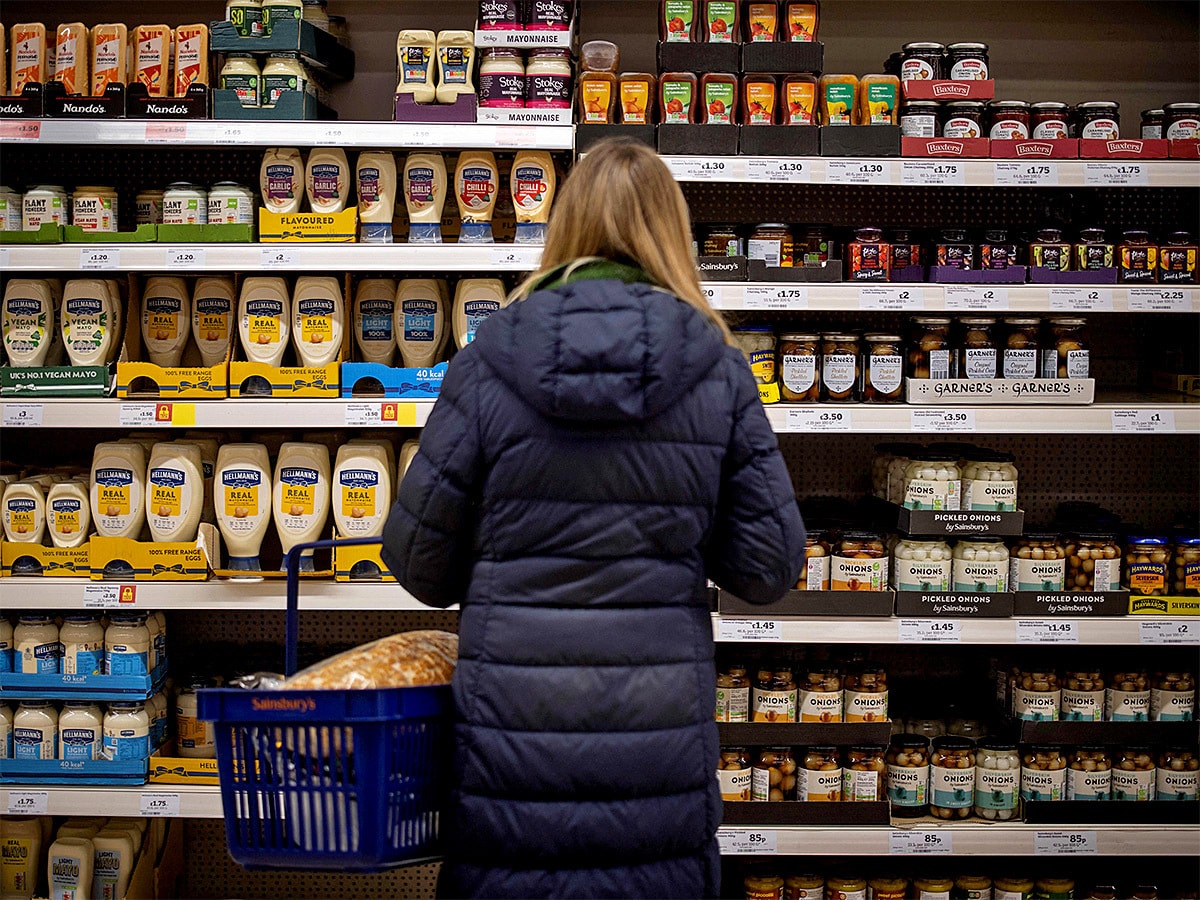With food prices outpacing the rate of inflation in the UK, grocery giants like Marks & Spencer, Tesco and Sainsbury’s are under pressure to maintain profits without passing costs on to customers.
Consumers up and down the UK are facing ‘shelf shock’ as rising inflation impacts the way people shop at major retailers like Sainsbury’s [SBRY.L], Tesco [TSCO.L] and Marks & Spencer [MKS.L].
The average price of a weekly shop has risen by 7% year-over-year, according to the latest statistics from Kantar. The market data group also revealed that supermarket sales had fallen 4.4% in the 12 weeks to 15 May, although they have recovered slightly with the fall slowing to 1.7% in the past month through to 24 May.
Fraser McKevitt, the head of retail and consumer insight at Kantar, said in an online statement: “People are really feeling the squeeze at the supermarket tills and they’re having to stretch their budgets further to accommodate rising prices.”
Further analysis of 21,000 products by Which? found that some had increased by 20% in price over the past two years, with grocery inflation across all product lines at 3.14%. Tesco had the third highest inflation behind Morrisons and Asda with a rate of 3.48%. Sainsbury’s rate of 3.07% put it fifth with Aldi sandwiched in between.
Outpacing its peers’ declines, the Marks & Spencer share price has fallen 35.2% in the year-to-date (through 27 May). Meanwhile, shares in Sainsbury’s and Tesco have decreased by 3.3% and 5.5%, respectively, over the same period.
Tesco and Sainsbury’s face an uncertain environment
While produce costs are rising, Tesco and Sainsbury’s have both been rolling back prices in recent weeks, especially on everyday items such as eggs, milk and bread.
Tesco warned in April when reporting its full-year earnings that underlying operating profits are expected to fall from £2.8bn in 2021/22 to within a range of £2.4bn and £2.6bn. This is due to “significant uncertainties in the external environment”.
Although shoppers’ wallets are going to be tightened in the months to come, Hargreaves Lansdown analysts believe it “should play into Tesco’s value-focused hands” even if it requires more money needing to be spent to keep prices low.
“An acceleration of the cost saving programme, set to deliver £1bn in savings over the next three years, should help mitigate rising costs to some extent,” the analyst wrote in research.
As for Sainsbury’s, it’s expecting underlying profit to decline from £1bn to between £630m and £690m. Although groceries remain its “bread and butter”, as the Hargreaves Lansdown analysts noted, the supermarket finds itself stuck between the cheaper offerings, including Aldi and Lidl, and more high-end brands like Waitrose and M&S.
“The group has done well to massively increase online capacity, but this came with huge costs… At the same time, the decision to focus on lowering prices means that if volumes don’t keep pace, profits will suffer,” the analysts warned.
M&S more protected from inflation
Strong fiscal 2021/22 earnings on 25 May helped to lift the Marks & Spencer share price, ending last week roughly 9.5% higher. Investors seemed pleased that the premium retailer had swung back to a profit of £309m, having made a loss of £201.2m in 2020/21. Operating profits rose 20% year-over-year to £709m. Weakness in its banking and services businesses was offset by strong demand for food and clothing.
Against a backdrop of rising consumer prices, the company has been lowering the prices of more products in its Remarksable Value range in a bid to lure some shoppers to add “products with M&S quality differential at everyday low prices” to their baskets. The price cut push over the past couple of years has improved value perception.
According to Hargreaves Lansdown analysts, M&S should be more resistant to inflationary pressures than the likes of Sainsbury’s and Tesco. “At a more premium end of the market, M&S’ core customers aren’t as sensitive to price. But that isn’t the same as being immune,” they wrote in a research note following the earnings report.
“Sustained high inflation or a recession will take some wind out of the group’s sails. Increased investment in online capacity is also going to hold things back from a profit perspective in the short-to-medium term”.
Disclaimer Past performance is not a reliable indicator of future results.
CMC Markets is an execution-only service provider. The material (whether or not it states any opinions) is for general information purposes only, and does not take into account your personal circumstances or objectives. Nothing in this material is (or should be considered to be) financial, investment or other advice on which reliance should be placed. No opinion given in the material constitutes a recommendation by CMC Markets or the author that any particular investment, security, transaction or investment strategy is suitable for any specific person.
The material has not been prepared in accordance with legal requirements designed to promote the independence of investment research. Although we are not specifically prevented from dealing before providing this material, we do not seek to take advantage of the material prior to its dissemination.
CMC Markets does not endorse or offer opinion on the trading strategies used by the author. Their trading strategies do not guarantee any return and CMC Markets shall not be held responsible for any loss that you may incur, either directly or indirectly, arising from any investment based on any information contained herein.
*Tax treatment depends on individual circumstances and can change or may differ in a jurisdiction other than the UK.
Continue reading for FREE
- Includes free newsletter updates, unsubscribe anytime. Privacy policy





